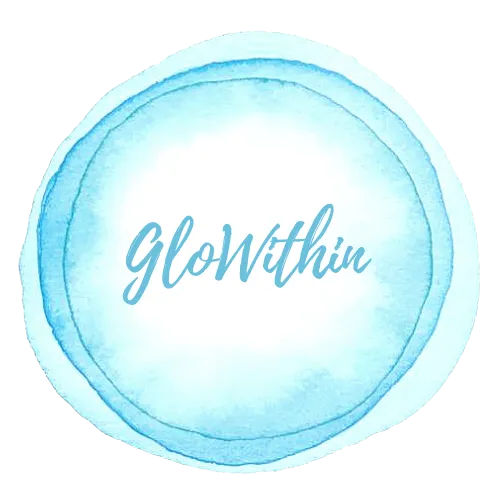Sleep and Our Nervous System

“A good laugh and a long sleep are the two best cures for anything”
~ Irish Proverb
Sleep and Society
Sleep and rest, while we know are important, are not rewarded in our society. We live in a society that celebrates doing and achieving more. Have you heard of ‘constructive rest’? Even that suggests we need to be doing something in our rest. What if we were encouraged to act in a more balanced manner?
When Covid hit I remember saying ‘thank goodness’! And I’m sure I wasn’t alone. I had hoped this would be a turning point when everyone would understand how important it was to rest and find a more balanced approach to life. And trust me, this is coming from someone who has had 3 burnouts before turning 36. I am super passionate about my ‘work’ and life and have to make a conscious effort to reel this zest in.
I’m not advocating for being ‘lazy’ by any means, but allowing ourselves to rest actually helps us be more efficient and effective…and enjoy life more! Look at some of the tech companies that have elaborate rest areas – they understand a real break allows us to be more creative and holistic in our approaches… and yes, it also cuts down on sick days, paid leaves etc.
What are your thoughts on rest?
Out of curiosity, when you’re faced with a problem and nothing seems to work, do you:
a) keep trying to figure it out OR
b) step away for a change of scenery and then come back with a fresh mind?
I’ve always stepped away, but not everyone appreciates this. For me, I could easily come back and figure out the issue with greater clarity and find a creative solution. This is an approach I take for intellectual, social, and emotional problems.
My interest in this is our health, and also how we are leading our children by example.
Why We Need Sleep and Rest
Any parent knows how valuable sleep is, and how lack of rest impacts us physically, emotionally, socially, and cognitively. With our second daughter I experienced extreme sleep deprivation for at least 8 months, and I can tell you it definitely alters you in ways you never expected. This is part of what can tip moms in particular, into deep postpartum depression and/or anxiety. I’ve also seen recently how lack of naps (due to her FOMO at school) has impacted our toddler’s behaviour and being a toddler not understanding the larger context, she has internalized events negatively. For a child, play is work, and we all know what happens when we work for more than 6 hours straight (or even less) without any break – we short circuit!
Here are just a few reasons why we as adults and children need sleep:
Physical Need for Sleep
Human Growth hormone is produced to help us heal and children to grow
Our blood pressure and cortisol (stress hormone) decrease, and our gut is able to heal (it requires about 8 hours a night to detox)
Cytokines (protein) are also release in our immune system to help us fight infections, inflammation, and trauma
When we rest we are more coordinated
With rest we have more energy and health to enjoy our passions!
Emotional Need for Sleep
We need rest to process information in Theta and Delta states (you can read my Brainwave post for more information)
When we rest we are better able to manage our emotions, stress, and impulses
With rest we can be more empathetic, understanding of others, and communicate more clearly for better relationships
Our nervous system needs time to relax in the parasympathetic state to reset, rather than being constantly ‘on’ contributing to depletion, anxiety, depression, burnout, and chronic illnesses
Cognitive Need for Sleep
When we rest we have the chance to process information and events
Sleep is when we create memories (also for learning)!
We need rest to be able to focus, learn, be creative, think holistically, problem-solve, and make healthy decisions (all of which are important skills children are learning)
The Biology of Rest and Sleep
When we rest or sleep we give our nervous system an opportunity to go into a Parasympathetic state, which offers numerous benefits as you will see below. To be healthy and resilient we need to alternate between the parasympathetic (rest, digest, socialize) and sympathetic states (fight, flight, freeze) as appropriate and with ease.
So what actually happens when we rest? I’m going to explain this in reference Brainwaves (you can read more on Brainwaves here):
Beta
This is where most adults and adolescents spend the majority of their days – in an active, ‘doing’ state. In Beta we are typically in our Sympathetic Nervous System. When we spend too much of our time in the Sympathetic state, this ongoing adrenaline and cortisol rush is unhealthy for our bodies, ultimately leading to anxiety, depression (depletion), chronic illnesses, and burnout (adrenal fatigue).
Alpha
This is associated with calm activity, where we can think holistically and absorb information. Here we are in our Parasympathetic Nervous System, and are able to function optimally in daily life. At this stage our body may be beginning to relax – our heartbeat, breath and eye movements slow down while our muscles relax. This is why we want to have a nice bedtime ritual to really allow our bodies the chance to slow down and prepare for a restful sleep.
Theta
Again we are in the Parasympathetic state, with our breath, heart rate, and eye movements slowing even more, and muscles becoming more relaxed. We come into this state during meditation, healing sessions, and naturally upon waking and falling asleep. Theta is associated with the first two stages of our sleep cycle. Babies spend most of their time here.
Delta
In this stage we are in deep sleep and REM occurs, while our bodies become immobilized (not to be confused with the ‘freeze’ state of the Sympathetic system). Our nervous system is at rest, allowing our body to go into repair-mode with Human growth hormone and Cytokines being released. During this time our Thalamus stops filtering external stimuli, allowing us to integrate experiences with other parts of our brain, resulting in memories. At this stage our Amygdala, which processes emotions, becomes more active which is why we can have very strong feelings in our dreams.
Gamma
I personally liken this to being in Theta and Alpha at the same time – we are highly conscious and everything flows through us with incredible ease. It’s as if we are in a deeply meditative Theta state while being awake and functioning in our daily lives.
Getting Your Circadian Rhythm Back on Track
Our circadian rhythm helps promote an optimal balance between sleep and wakefulness using daylight and temperature cues. For many, this has been disrupted with blue light from electronics, lack of physical activity, and not enough natural daylight. In addition, stimulants disrupt this process, cueing our pineal gland to release melatonin to tell our body it’s time to sleep. Did you know babies get their melatonin from Mom’s milk to help them establish a rhythm until they are about 4 months?
Get enough exercise and natural daylight
Try not to have any stimulants after noon
Avoid blue light (phone, laptop, tv) at least one hour before bed
Create a routine for yourself (and children) to unwind before bed
No alcohol is best as your body has to work extra hard to get rid of toxins
Go for walks in the moonlight
If you need extra support, speak to your ND or MD about Magnesium and GABA
If you’re really struggling, think about taking a few day off-the-grid trip to somewhere remote!
How Much Sleep Do You Need?
We are all different, but like a computer or phone, when you are on all the time…what happens? That’s right, the battery needs to recharge. And when you have lots of windows open? It needs to re-charge more frequently. This is akin to multi-tasking, which is a micro-stress and if a chronic way of being, can lead to burnout and other symptoms of an unhealthy nervous system.
We do see the amount of sleep we need as we grow older seems to decrease, but I still advocate for naps or rest during the day to give our brains a rest so we can come back fresh, with new perspective, and more energy!
How Many Hours of Sleep Does Each Age Group Need?
As an adult we need 7-9 hours a night
Teenagers need 8-10 hours
School-aged children 9-12 hours (Cleveland Clinic)
Preschool-aged children need 10-13 hours (Raising Children)
Children 1-2 years need 11-14 hours (Sleep Foundation)
Babies 4-11 months need 12-15 hours and infants (0-3 months) require 14-17 hours
Children and Rest
Children 2 to 6 years often wake up with nightmares as their imaginations become increasingly active, or potty training concerns. Naps or long periods to rest with minimal stimulation are critical at this age. They are learning so much and their work is play, so as adults, we need to help them establish healthy rest routines.
Many children I’ve taught or work with are over-whelmed and over-stimulated – many have anxiety. Part of this is the way we live today, and the other part is they don’t get the time to rest and just be in their own bodies. As adults we often don’t give ourselves this chance either, so where are they going to learn this from?
Studies have linked insufficient sleep with poor cognitive performance, behavioural challenges, obesity, anxiety, and depression. In children, this can have a lasting impact on our performance, social development, and future potential.
In most yoga classes I’ve taught for children, guess what their favourite part is? Yup, Savasana – rest time. Rest and break time are incredibly valuable! As children this is when we integrate all our skills and learning to be independent and creative. For any age, rest helps us to be more resilient physically, emotionally, and cognitively!
Children and Rest
Here are some suggestions to help children incorporate more rest into their day:
Create a ‘safe’ space they can retreat to when they need rest or personal space
Have a regular nap routine, especially in children under 3 years
Teach your child simple meditation or mindfulness tools - lots in the App!
Play quiet solfeggio music or binaural beats to help ‘bring down’ the energy
How You Can Get Better Rest and Sleep
Help your Circadian Rhythm with the tools I shared above!
Yin (passive) styles of Yoga – Nidra (Yogic Sleep), Restorative, Yin
Sound healing – solfeggio or binural beats
Make it a priority for yourself – carve out the time and you will thank yourself!
Create a routine that helps you unwind before bed – bath, legs up the wall, sound healing music, essential oils
Regular self check-ins to perhaps close your eyes, ground your energy, breath + take time to notice sensations in your body
Learn More!
Below are more tools you can access for support to empower yourself as a parent and in-turn your children.
- gloWithin app – explore various courses to support you and empower children
- 'I Am' Kids Yoga Cards – empower the children in your life physically, emotionally + socially
Youtube - so many tools for the entire family!
- Children's Yoga Teacher Training - learn tools to support yourself and children 0-15y
Please reach out if you have any questions – I always love to hear from you!
Katie
ps. Please share this with anyone you feel would benefit!



